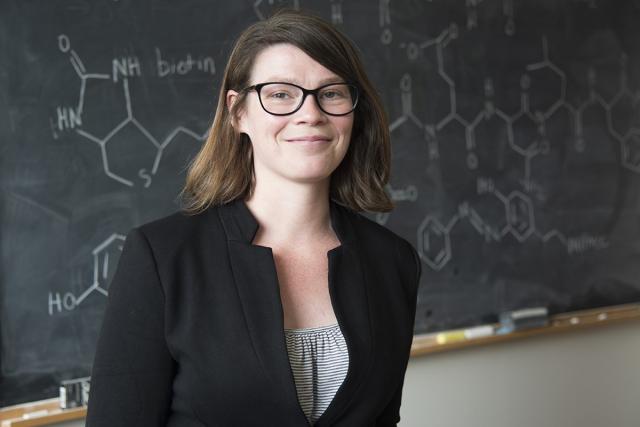Wednesday, February 5, 2025 - 4:00pm
Spatial organization and temporal dynamics are essential properties of cellular signaling. Post-translational modifications (PTMs) to proteins relay biological signals by exerting precise spatiotemporal control over protein function, localization, and lifetime. A systems-level experimental map of post-translationally modified proteins across subcellular space and time would transform our understanding of how PTMs orchestrate complex cellular functions in response to biological stimuli. However, such a map is inaccessible with current technologies. To meet this challenge, the Weeks lab is focused on developing new chemical and enzymatic tools for PTM proteomics with subcellular spatial and temporal resolution. We develop chemical probes and genetically targetable, PTM-selective proximity labeling enzymes to covalently tag post-translationally modified proteins in specific subcellular locations, enabling their enrichment and analysis with mass spectrometry-based proteomics experiments. We focus on two pervasive PTMs, proteolysis and phosphorylation, both of which play critical roles in myriad biological signaling pathways relevant to human health and disease. Our technologies are broadly applicable to a wide variety of protease and kinase signaling pathways and provide an integrated view of cellular signaling with implications for both fundamental biological discovery and the treatment of human disease.
Speaker:
Amy Weeks
Institution:
UW Madison
Location:
RH 104

